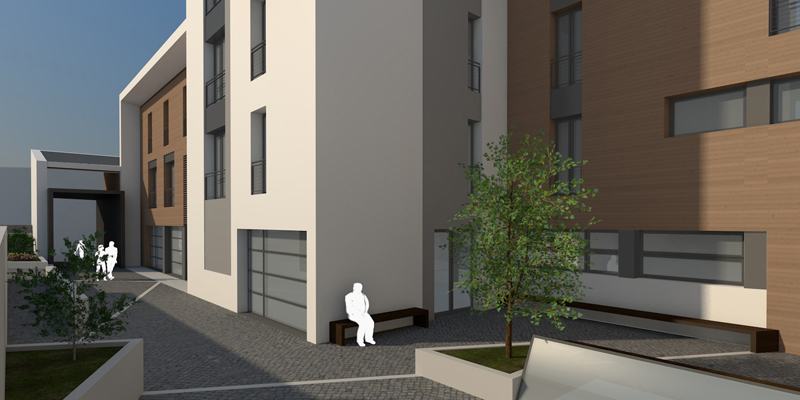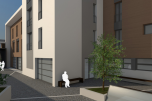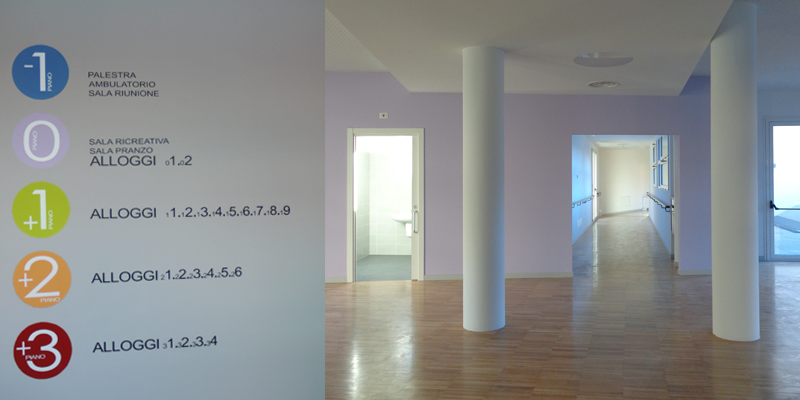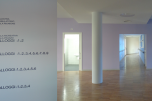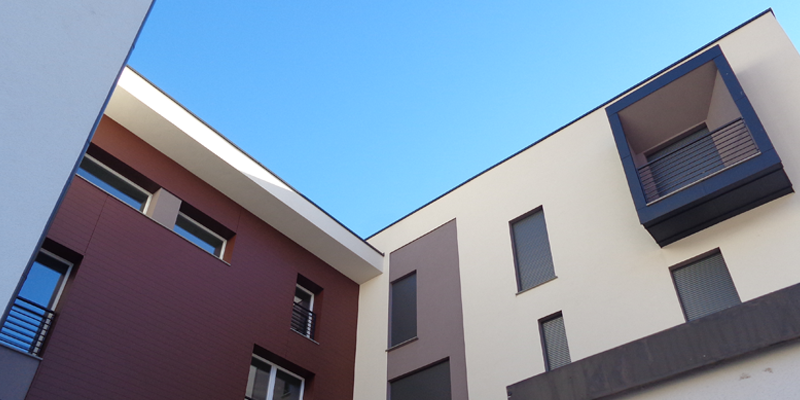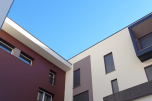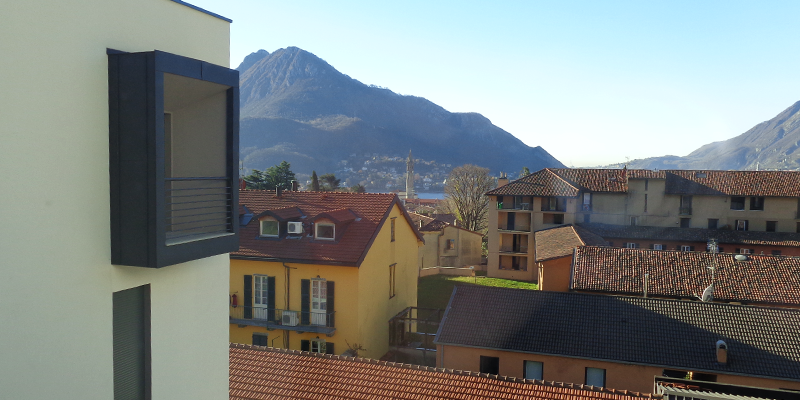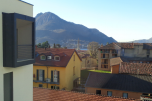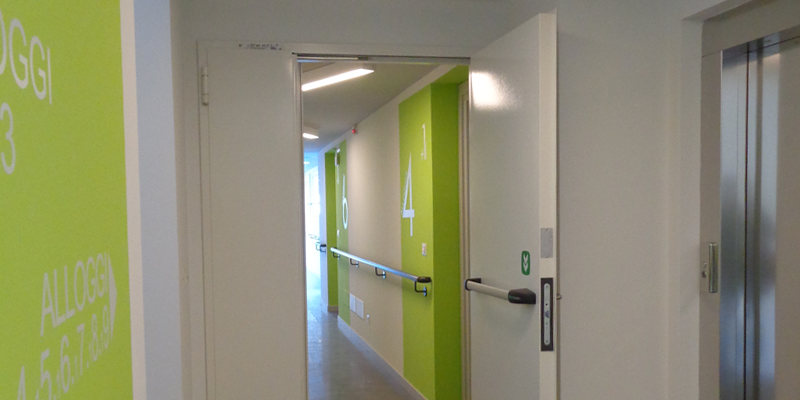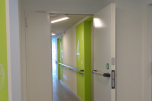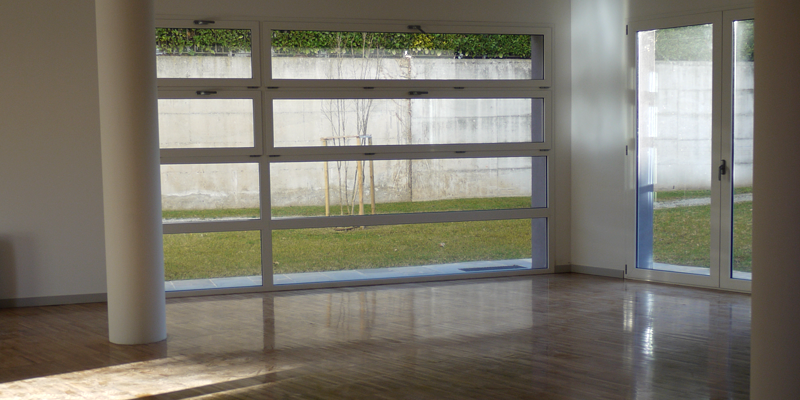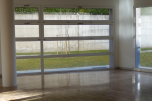POLO FONDAZIONE FRASSONI – LECCO
DETAILS
Construction work end: 2013
Services available:
– an Integrated Day-Care Centre for up to 40 people;
– 20 dwellings of which:
– 18 sheltered homes for self-sufficient elderly people;
– an apartment equipped with home-automation technology, to be used for training activities for families and care givers;
– a “light” residential unit for patients in fragile situations.
– an information point which acts as a guide to services.
The Frassoni hub offers an Innovative Model of Offer Unit for fragile elderly people, which is able to integrate residential, semi-residential and territorial services to offer the most appropriate response to the care needs of the elderly in the city of Lecco.
This intervention arose from the desire of Fondazione Fratelli Frassoni to add value to an unused piece of land in their possession, promoting the realization of a project with high social impact that could meet the real needs of the vulnerable population in the local area, in accordance with the Fondazione’s mission.
To this end, Fondazione Fratelli Frassoni, with the support of Fondazione Comunitaria della Provincia di Lecco and Fondazione Cariplo, activated locally-based resources and involved the Lecco Municipality and ASL (Local Health Authority), FHS, Regione Lombardia and the FIL (Lombardy Ethical Real-Estate Fund), thus developing a level of synergy of outstanding importance between the public and private sectors.
The manager of the service hub, the cooperative Like Community, consists of nine members, eight of which are social cooperatives which have been working for years in the territory, plus Fondazione Istituti Riuniti Airoldi e Muzzi, with their long tradition of developing services for the elderly and other vulnerable sectors of the population. Inside the Like Community, Arcobaleno SCS Onlus, Fondazione Istituti Riuniti Airoldi e Muzzi and Sineresi SCS Onlus are directly involved in the operation due to the experience and skills they have developed in the sector of services for the elderly.
The building, designed by the Lecco studio ABR+, is a new-build of approx. 2,200 sq.m. that contains social and healthcare services aimed at fragile elderly people. The structure has an integrated day-care centre on the ground floor for up to 40 people, an apartment equipped with home-automation technology and an information point which acts as a guide to services. The integrated day-care centre is equipped with a space for communal activities and a dining room featuring large windows that supply abundant natural light and offer visual continuity with the external sheltered spaces. The offer is completed by an out-patient clinic and a gym. On the upper levels there are 18 one- and two-room apartments which are designated to elderly people with different levels of autonomy. In addition to these, on the top floor there is a larger apartment that is designed as a co-residence for especially fragile users. All the apartments have balcony doors, which enable the residents to see outside even if they are temporarily bed-ridden. The use of colours to identify and distinguish each floor helps the elderly to orientate themselves and makes the space recognizable. Special attention has been given to the functional spaces which, even though extensive, are very attractive and welcoming thanks to the presence of windows that provide views over the countryside, and the use of lively graphics.
A fundamental component of the new offer unit is the sheltered apartments that enable elderly people who are partially self-sufficient to improve their quality of life, allowing them to live in an assisted context, at affordable prices; the experience of a new model that combines the apartment with a network of services makes it possible to intercept a segment of users that are unable to find adequate responses to their needs in the existing system. The inclusion of an Integrated Day-Care Centre within the structure makes it possible to achieve relevant synergies, in particular with relation to the quality and quantity of services on offer to the users, the flexibility of the timetables and the possibility to limit some of the structural costs. The flexibility of the services that can be provided enables the development of customized assistance programs, thus guaranteeing each guest receives personalized support which safeguards their existing fragility and enables them to make the most of their remaining potential. The apartment that is equipped with home-automation technology is dedicated to the training of families or care-givers both in care practices and in the use of new technology; these people can then work with the guests who are in temporary residence in the structure. The inclusion of the specialized and social and healthcare personnel who are required to run the “light” residential facility brings benefits to the whole structure, enabling the creation of a wider team of people with a greater range of skills.



